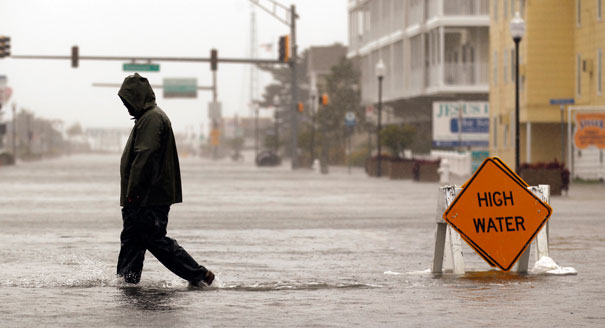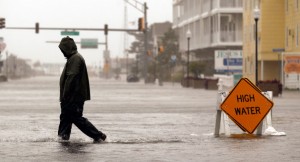Calamity and disaster, such as that wrought by Hurricane Sandy or other forces, leave in their wake a residual of material carnage and disruption of services. While services get re-established and structures get rebuilt, often it is the emotional residual that takes much longer to restore. Many emotions are likely to result: loss, grief, confusion, anger, frustration, helplessness, hopelessness, guilt and so on. I have personally lived through earthquakes, tornadoes and a flood last year that destroyed my clinic. It is important to recognize that coping with disaster does not mean controlling one’s feelings regarding disaster. We must learn to recognize and mindfully embrace the feelings that arise.
Grief and loss – regarding destruction of personal property, destruction of neighborhoods, interruption of work and personal role and relationships, death or injury to loved ones or neighbors.
Fear/anxiety – Following trauma, changes occur to the central and peripheral nervous system. They enter a near constant state of “yellow alert” such that the “flight or fight” response stays partially activated. Thus, an individual is likely to experience a pervasive sense of dread, worry or anxiety, remain hyper-vigilent to any signs of danger, have difficulty sleeping or relaxing, experience a pronounced “startle response”, experience intrusive recall or flashbacks of the traumatic event and possibly nightmares. Many of these responses may not be seen for a while after the trauma.
Confusion – Uncertainty regarding the future, dealing with the tangle of bureaucracy and support services, wading through rumors and other information that will be cascading.
Anger – at God, the weather, government, relief agencies, neighbors, and even one’s self are likely to ensue.
Helplessness/hopelessness – Feelings of being overwhelmed, not knowing where to begin, what choices to make, what information to believe. A fear that nothing can or will improve and a sense of complete loss of control in the wake of future recurrences.
Guilt – Self blame for not having been better prepared or for not evacuating. Blaming ones self for feeling badly when others have it worse. Guilt for surviving when others either perished (survivor guilt) or sustained greater losses.
All these feelings and more are normal and understandable consequences of trauma exposure whether due to natural disaster, or any other type of traumatic life experience.
Several tips to enhance coping:
1) Give yourself permission to have these feelings.
2) Practice mindfully labeling feelings as they arise.
3) When possible, actively embrace the feelings through emotional surfing (see corresponding posts). Use implosion imagery to help maximally expose your fears and “what ifs”.
4) Seek support. Wherever possible, talk about your feelings. Don’t let anyone tell you what you should be feeling. Always know that the presence of your feelings are lawfully determined and therefore they do not need to be legitimized. Their very presence is their own legitimacy!
5) Write out your feelings. Write out in as raw and honest a way, exactly what you feeling at a given point in time. Do not be concerned with how it looks, sounds or appears. Write from your heart, not from your head.
6) Seek professional help when you can. We go to hospitals for physical injury. Don’t be a hero. The emotional wounds are often more difficult to heal. Reach out. help is there.
Over time you just might find peace and growth in the heart of pain and despair. “Post traumatic growth” is a real possibility!
Best wishes to all.
Please, feel free to share any related experiences, comments, suggestions, questions.







4 Comments. Leave new
This is brilliant! I’m emailing this link to several friends who are facing this. As you say, reactions may be delayed, too.
Very insightful and helpful! Thanks to Heidi for sharing this post with me (as well).
I am glad this was helpful for you Melissa. I hope others affected can find benefit as well. Best wishes!
Thanks. Please do pass this on to those you know who may have been affected by this or other trauma. Good information is the first line of defense to head off problems down the road. Of course I hope they have electricity to view your e-mails:)